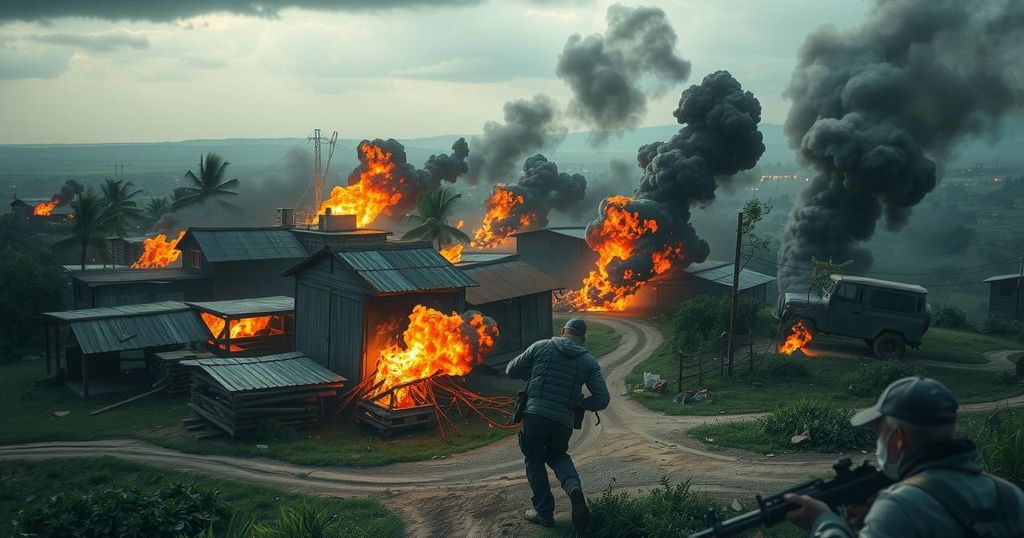The M23 rebel group has captured the towns of Katale and Masisi in eastern Congo, raising concerns over a worsening humanitarian crisis in a region already home to thousands of displaced individuals. Authorities confirm the deteriorating security situation, with accusations of foreign military support adding to the complexity of the conflict. Despite a previous ceasefire agreement, fighting has resumed, prompting significant international concern.
GOMA, Congo (AP) — Reports indicate that the M23 rebel group has gained control of two significant towns in eastern Congo, as the security and humanitarian crisis in the region exacerbates. Over the past week, rebels have successfully taken Katale and Masisi towns, with Masisi positioned approximately 80 kilometers west of the regional capital, Goma, serving as a critical access point to the country’s interior. The rise of M23 is indicative of the ongoing conflict of over 100 armed factions competing for territory in the mineral-rich areas of eastern Congo near the Rwandan border, resulting in substantial displacement and humanitarian distress affecting over 7 million individuals.
Lawrence Kanyuka, the political spokesperson for the M23, proclaimed the group’s commitment to civilian protection following their capture of Masisi, which has been corroborated by local officials. Alexis Bahunga, deputy for the Masisi territory, described the humanitarian situation as dire, emphasizing, “The humanitarian situation is so catastrophic. People are scattered in all corners of the territory, in camps.” The local populace is reportedly fleeing the violence, with alarming accounts of fatalities amidst rebel attacks, as conveyed by residents like Bernard Kanyama, who witnessed direct impacts of the conflict.
Furthermore, the Congolese military spokesperson stated that they are currently verifying these developments. The situation is compounded by allegations of Rwandan support for M23, which Rwanda has denied while asserting that their military presence in eastern Congo is solely for national security purposes due to a perceived threat from Congolese forces. Despite a ceasefire agreement signed in July with the M23, hostilities have rekindled, leading to international concern regarding violations of the ceasefire.
The conflict in eastern Congo has spanned decades, marked by persistent violence and the struggle for control over the region’s vast mineral wealth. The M23 rebel group, originally formed in 2012, has re-emerged, leading to renewed conflict and worsening humanitarian conditions. The ongoing turmoil has resulted in one of the world’s largest displacement crises, posing significant challenges not only to the Congolese government but also to regional stability in Central Africa. International attention has been increasingly focused on the involvement of neighboring countries such as Rwanda, further complicating the conflict dynamics.
The recent seizure of Katale and Masisi by the M23 rebels underscores the escalating violence in eastern Congo, which is accompanied by a humanitarian crisis of alarming proportions. The challenges posed by the multitude of armed groups vying for power in this region, coupled with allegations of foreign involvement, further complicate the resolution efforts. Urgent responses are needed from both the Congolese government and the international community to address the ongoing violence and its dire impacts on civilians.
Original Source: apnews.com






